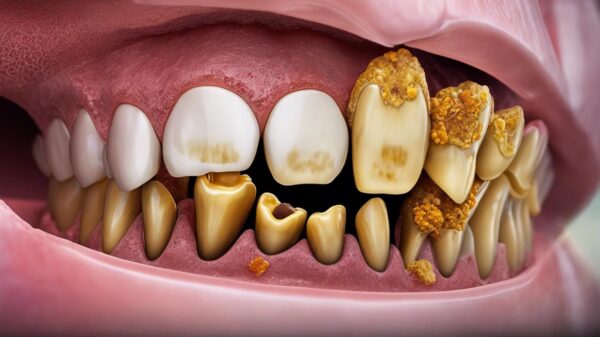Are Tooth Aches Serious?
If you are experiencing tooth pain, it can be difficult to determine whether or not it is serious. Many people assume that any toothache is a cause for concern, but that isn’t always the case. It’s important to know when you should take tooth pain seriously so you can prevent future problems!
In this blog post, we will discuss when tooth pain is serious and when you should be concerned about your oral health.
How do I know if my toothache is serious? The most important warning sign is if your toothache is accompanied by a fever. A high fever can be a sign of a more serious infection, such as an abscessed tooth. Additionally, if you are experiencing severe pain that radiates to other parts of your body, it is likely that you have a dental emergency and should seek treatment immediately.
Other signs that your toothache may be serious include:
- Swelling and redness in the gums
- Difficulty swallowing or opening your mouth wide
- A metallic taste in your mouth
If you are experiencing any of these symptoms, please visit your dentist right away for an evaluation. They will help diagnose the problem and offer solutions!
However, if you don’t feel you are in an emergency, it may be helpful to learn more about toothaches before going in. So let’s explore some of the most common causes of tooth pain and when they are serious.
Common Causes Of Toothaches
Here are some of the most common causes for tooth pain:
- Tooth decay
- Gum disease
- Cavities between teeth
- Abscessed tooth
- Growing wisdom teeth

A toothache can be caused by several different factors, but it is most often related to dental decay or an infection. If you are experiencing pain in your mouth, it may help identify the source of discomfort and what type of treatment will be necessary to alleviate symptoms.
If you are having trouble identifying the source of pain yourself, then a trip to the dentist is necessary.
When A Tooth Ache Is Serious
As I mentioned already, tooth pain can come from a variety of sources. Some of these are more serious than others. The most common cause of toothache is dental decay, which can be treated with a filling or crown.
However, if the infection spreads beyond the tooth itself, it can become very serious and may require antibiotics or surgery.
Abscessed teeth are another serious source of toothache. An abscessed tooth is a pus-filled pocket that forms on the gums. If left untreated, it can cause damage to the bone and lead to tooth loss.
Another serious condition that can cause toothache is gum disease. Gum disease is a bacterial infection that affects the gums and bones supporting the teeth. If left untreated, it can lead to tooth loss and even heart disease!
The last condition I will discuss is impacted wisdom teeth. Impacted wisdom teeth are a common cause of toothache and can be very painful when they erupt. They may also lead to crowding or misalignment in the mouth, which can affect how well your dentures fit properly if you have them!
How To Prevent Toothache
The best way to prevent toothache is to maintain good oral hygiene habits. This includes brushing and flossing your teeth at least twice a day, using mouthwash, and scheduling regular dental checkups. By following these simple tips, you can help keep your teeth healthy and free from pain!
Your diet can significantly impact your oral health. Sugary foods can lead to tooth decay and gum disease, so it’s important to limit these snacks in between meals or during bedtime snacking (avoiding sugary beverages like soda).
If you have a cavity that needs filling, be sure not to eat anything sticky such as candy or gummy bears because they can stick to the filling and cause pain.
What To Do If You Have A Toothache
The first thing you will want to do when you notice a toothache is to jot down the details. Answer these questions and write the answers down somewhere safe.
When did it start? How long has this been going on? Is there any swelling or bleeding around the tooth in pain?
Have you noticed anything else unusual such as a metallic taste in your mouth when drinking water or saliva turning redder than usual when brushing your teeth? Do you notice any bad smells lingering in your mouth?
Doing this will not only help you pinpoint the problem, but it will also help your dentist have the full story as well. Keep a daily log for as long as the pain lasts. In this time, you can try changing your diet, and trying at-home remedies. Keep track of any medication you take as well.
 At-Home Remedies for Tooth Aches
At-Home Remedies for Tooth Aches
If you have been able to decide that the toothache is not serious, there are some things that you can do at home to help alleviate symptoms; these include:
- Rinsing your mouth with warm salt water (or hydrogen peroxide if you have a cut on the inside of your mouth)
- Placing a cold pack or icepack against the outside of your cheek near the toothache
- Gently suck on ice chips or hard candy to help ease the pain
- Taking ibuprofen or acetaminophen for pain relief
- If the toothache is caused by a cavity, you can try using over-the-counter dental products like Sensodyne Repair and Protect. These work to repair small cavities and help protect your teeth from further damage
When To See A Dentist
As I mentioned before, some toothaches are more serious than others. If you are experiencing any of the following symptoms, it is important to seek dental care as soon as possible:
- Fever
- Swollen lymph nodes
- Difficulty opening your mouth wide enough to eat or speak
- Severe pain that lasts for more than a day or two
- A toothache that is accompanied by a cold or flu-like illness
- If you have any recent dental work done (such as a filling, crown, root canal, etc.), and are experiencing prolonged pain around this area of your mouth.
What If There Is Blood In My Mouth?
If you notice any blood in your mouth, it is important to see a dentist as soon as possible. This could be a sign of gum disease, tooth decay, or even cancer!
Early diagnosis and treatment are key in preventing further damage. However, the occasional small amount of blood when brushing your teeth is typically no need for concern.
What If I Don’t Have Dental Insurance?
If you do not have dental insurance, there are still ways to get the treatment you need at an affordable rate. If your toothache is serious and needs immediate attention, then it’s best to find a low-cost dental clinic near your home or workplace.
They may be able to see you for less than $100 (most clinics offer a sliding scale fee payment system).
Your dentist may offer a payment plan, just ask. There may even be some volunteer clinics in your area that can do the service for free. If the toothache is not serious, you can try an over-the-counter dental treatment or even a home remedy.
 What Is Gum Disease?
What Is Gum Disease?
We have mentioned it a couple of times in this article but what exactly is gum disease and how serious is it? Gum disease is a bacterial infection that affects the tissues surrounding and supporting your teeth. It is the leading cause of tooth loss in adults, and can even lead to other health problems if left untreated.
The symptoms of gum disease include:
- Red, swollen, or tender gums
- Bleeding during brushing or flossing
- Gum recession
- Persistent bad breath
Some people are at a higher risk of developing gum disease than others. This includes smokers, pregnant women, people with diabetes, those who have certain vitamin deficiencies (such as C and D), those taking certain medications (that cause dry mouth), and anyone with a family history of gum disease.
If you fall into one of these categories, it is important to talk with your dentist about what you can do to prevent gum disease.
What Is A Cavity?
A cavity is a hole that develops in your tooth. It occurs when the enamel on your teeth starts to break down due to decay or acid erosion.
The most common causes of cavities are sugary foods and beverages, plaque buildup (due to poor oral hygiene), dry mouth syndrome (caused by certain medications or health conditions), and fluoride deficiency.
Cavities can be treated with a variety of dental procedures, depending on the severity. This may include: filling the cavity with a synthetic material, crowning the tooth, or even root canal therapy. If left untreated, cavities can lead to more serious dental problems such as gum disease, tooth decay, and even tooth loss.
So, now you know when to be concerned about a toothache and when to see a dentist. Remember, early diagnosis is key in preventing further damage. If you have any other questions or concerns, please don’t hesitate to ask your dentist. They are there to help you! Thank you for reading today’s article!












